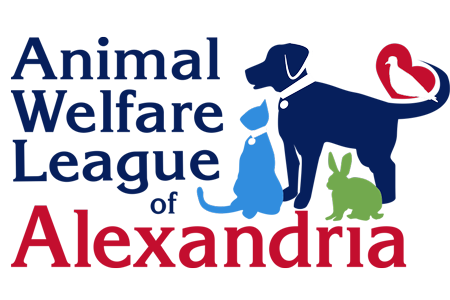Living with Wildlife
Animal Services and Wildlife
The AWLA’s Animal Services is contracted by the City of Alexandria to provide assistance and support to and about wildlife throughout the City. This may include rescuing injured or distressed wild animals, helping animals trapped in homes or on personal property, assisting residents endangered by wild animals and working with the Alexandria Health Department to test wild animals potentially carrying the rabies virus.
While Animal Services works hard to help Alexandria’s human and animal residents, Virginia law forbids our officers from interfering with animals in the wild that are not ill, injured or presenting a threat to people around them. Animal Services can also assist Alexandria residents with wild animals loose in their homes, though if those animals are trapped in contained spaces (such as in chimneys or under floorboards), officers are not allowed to cause potential home damage to apprehend those animals and can provide information for licensed wildlife removal specialist.
Wild Animals and You
If you think you’ve found an animal in need…STOP. Chances are, the animal is safe and healthy, and interfering with him or her could cause more damage. If an animal is injured or in distress, he may snap out at someone trying to rescue him, hurting you and even himself. Contact AWLA’s Animal Services at 703-746-4774 for advice on what to do, and if the animal needs help, our team of trained officers can provide that assistance.
In the state of Virginia, it can be illegal to interfere with wildlife in its natural habitat, as it can lead to the transmission of disease and cause the animal injury or even death, so your best way to help yourself and an animal in need is to call AWLA’s Animal Services.
Common Virginia Wildlife
Learn more about just some of the animal neighbors you might meet in your own backyard.
Foxes
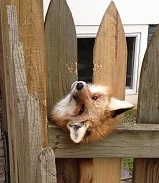 Foxes are indigenous to Alexandria and Northern Virginia. As the region developed into an urban landscape, foxes adapted and they continue to live alongside us. Foxes are generally shy and are rarely seen, but they do inhabit our neighborhoods. Most fox sightings occur at night, when they are most active, but as part of their adaptation to urban life, foxes will scavenge for food during both day and night. The mere presence of a fox during daylight hours is not a sign of rabies. Foxes survive by eating rodents and other small mammals like squirrels, woodchucks, and rabbits and they do not hibernate in the winter.
Foxes are indigenous to Alexandria and Northern Virginia. As the region developed into an urban landscape, foxes adapted and they continue to live alongside us. Foxes are generally shy and are rarely seen, but they do inhabit our neighborhoods. Most fox sightings occur at night, when they are most active, but as part of their adaptation to urban life, foxes will scavenge for food during both day and night. The mere presence of a fox during daylight hours is not a sign of rabies. Foxes survive by eating rodents and other small mammals like squirrels, woodchucks, and rabbits and they do not hibernate in the winter.
The mating season for foxes lasts from January to early March. Like other forms of wildlife, fox populations fluctuate from year to year and the warmer winters as of late have led to more fox pups surviving. During mating season, foxes will become more vocal and that is often when many residents discover they have foxes living nearby. According to the Virginia Department of Game and Inland Fisheries, “The mere presence of a fox, raccoon, coyote, or bobcat on your property is not necessarily a cause for alarm. These animals are not predatory toward humans and rarely pose a threat to pets.”
If residents see a fox, they should simply leave the animal alone. Residents should never feed wildlife or encourage wild animals to approach them. All household pets should be vaccinated against rabies and not left unattended or allowed to roam the neighborhood. Animal Services will not capture or relocate any wild animal simply because they are sighted or are making noise. One of the benefits of living in the City of Alexandria is the abundance of wooded areas and natural habitats, and we must be tolerant and learn to coexist with the wildlife we share our city with.
READ MORE about mange found in foxes in fall/winter 2022.
Raccoons
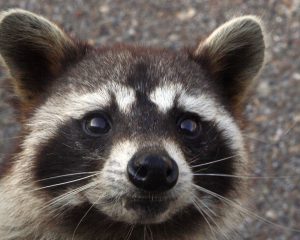 Raccoons are generally nocturnal, but like foxes, they have become acclimatized to their urban surroundings and now explore their surroundings when it is most advantageous for them. Seeing a raccoon during the daytime is not necessarily a sign that it is sick or dangerous.
Raccoons are generally nocturnal, but like foxes, they have become acclimatized to their urban surroundings and now explore their surroundings when it is most advantageous for them. Seeing a raccoon during the daytime is not necessarily a sign that it is sick or dangerous.
These masked bandits might be blamed for a lot of urban damage, like digging under buildings, rummaging through trash or making noise during the nighttime hours. Before you assume that your neighborhood nuisance is a raccoon, read some of the Raccoon Signs provided by the Humane Society of the United States and learn more about how to resolve any conflicts you might have with our five-fingered friends.
Squirrels
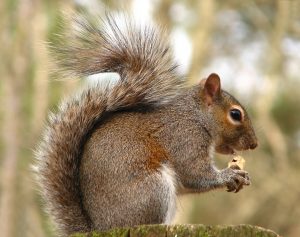 Tree squirrels are prevalent in Northern Virginia, and they have adapted to make our urban environment their perfect home. Squirrels do their best to succeed by looking for food and a safe place to sleep at night, and in doing so, may seek to find safety inside your house and outbuilding and forage for easy meals, like from your bird feeder. There are many safe and humane ways to prevent squirrels from becoming a neighborhood nuisance; read more from the Humane Society of the United States.
Tree squirrels are prevalent in Northern Virginia, and they have adapted to make our urban environment their perfect home. Squirrels do their best to succeed by looking for food and a safe place to sleep at night, and in doing so, may seek to find safety inside your house and outbuilding and forage for easy meals, like from your bird feeder. There are many safe and humane ways to prevent squirrels from becoming a neighborhood nuisance; read more from the Humane Society of the United States.
On average, squirrels eat about one pound of food per week, and that includes more than just nuts. Squirrels are omnivores, which means they eat both plants and meat, so while they mainly eat fungi, seeds, nuts and fruits, they will also munch on eggs, small insects, caterpillars and occasionally even small animals.
Bats
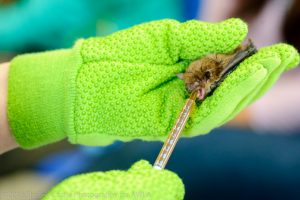 Bats do so much for our neighborhoods, like keeping the insect population under control. While bats can get a bad rep for nesting in people’s houses or even drinking blood, in the United States, only a few of the 40 species of bats cause problems for people.
Bats do so much for our neighborhoods, like keeping the insect population under control. While bats can get a bad rep for nesting in people’s houses or even drinking blood, in the United States, only a few of the 40 species of bats cause problems for people.
Because bats are mammals and therefore warm-blooded, they can be vectors for the rabies virus. Awareness of the facts about bats and rabies can help people protect themselves, their families, and their pets.
If a bat is found indoors and may have had contact with someone, DO NOT release it. Please call Animal Services at 703-746-4774 to determine if the animal should be picked up and tested for rabies. All dead, sick or easily captured bats will be tested for rabies if exposure to people or pets occurs.
Prevent bats from entering occupied spaces in homes, schools and other similar areas where they might contact people and pets. Precautionary measures can include capping chimneys with screens and blocking other openings to porches, attics and cellars.
Birds
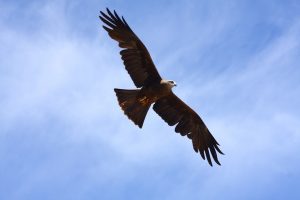 Birds come in many varieties in Northern Virginia, from the Eastern bluebird that hints at the beginning of spring to the majestic bald eagle, occasionally spotted in Alexandria. While birds can take many forms, there are also many similarities between them. For example, just because a bird is spending time on the ground does not mean it is injured; it may be eating, resting or finding its next meal. Additionally, unattended baby birds are not necessarily in need of assistance; their mother is most likely in search of food and will return shortly, and it is in the babies’ best interest not to be disturbed. Read more about baby birds and other baby animals at the bottom of this page.
Birds come in many varieties in Northern Virginia, from the Eastern bluebird that hints at the beginning of spring to the majestic bald eagle, occasionally spotted in Alexandria. While birds can take many forms, there are also many similarities between them. For example, just because a bird is spending time on the ground does not mean it is injured; it may be eating, resting or finding its next meal. Additionally, unattended baby birds are not necessarily in need of assistance; their mother is most likely in search of food and will return shortly, and it is in the babies’ best interest not to be disturbed. Read more about baby birds and other baby animals at the bottom of this page.
If you are worried a bird presents a risk, or if a bird is trapped in your house, please contact Animal Services for assistance at 703-746-4774.
Red-Eared Sliders
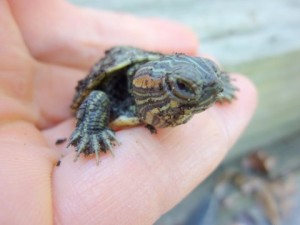 Red-eared sliders, semi-aquatic turtles named for the distinctive red stripe on the sides of their heads, are among the most popular pet turtles in the United States. A 1975 federal law prohibits the sale of turtle eggs and live turtles less than four inches in length.
Red-eared sliders, semi-aquatic turtles named for the distinctive red stripe on the sides of their heads, are among the most popular pet turtles in the United States. A 1975 federal law prohibits the sale of turtle eggs and live turtles less than four inches in length.
In Virginia, red-eared sliders are defined as naturalized wildlife, which makes their sale, purchase or adoption illegal in the state (though they can be kept as pets, if they were adopted before July 2021). Learn more about red-eared sliders.
Opossums
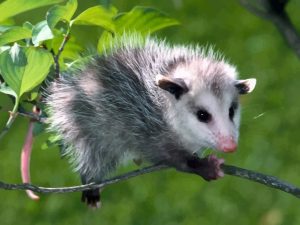 Opossums, also know in North America as possums, are the only marsupial in the United States, meaning that mother opossums gestate their young in a pouch. Famous for “playing possum,” possums may play dead when scared or threatened, but they may also hiss or bare their teeth. Opossums are nomadic, meaning they do not establish long-term fixed homes but keep on the move, as family while the opossum joeys are still small and later individually.
Opossums, also know in North America as possums, are the only marsupial in the United States, meaning that mother opossums gestate their young in a pouch. Famous for “playing possum,” possums may play dead when scared or threatened, but they may also hiss or bare their teeth. Opossums are nomadic, meaning they do not establish long-term fixed homes but keep on the move, as family while the opossum joeys are still small and later individually.
Opossums may not want to come face-to-face with your pets, but they are still a great pal to your furry friend because they slow the spread of Lyme disease by eating more than 90% of the ticks that attach to them, which is suggested to be around 5,000 ticks a year. Like most wildlife, possums are omnivores and eat both plants and meat. Because they have a lower body temperature, opossums are less likely to contract rabies from an animal bite, but it still can happen, so if you see an opossum acting oddly, please call Animal Services for assistance.
Baby Wildlife
In the spring, you may start to see not only adult wildlife but also their wild babies! Baby animals are often seen without their parents and may occasionally seem to be in need of help, but just like their parents, before you try to help Alexandria’s youngest animals…STOP! Sometimes the best thing you can do for these little ones is leave them alone. Often, their parents are near, gathering food and other resources, but if you move or touch their babies, you may endanger their safety. Read more about the wild babies you may meet this season and how you can help them…if they need it!
This slideshow requires JavaScript.
Questions or concerns about any wild animals in Alexandria?
The AWLA’s Animal Services department is trained to handle domestic pets and wildlife in distress. If you think that a domestic or wild animal is in distress, please call the AWLA at 703-746-4774 or email animalservices@AlexandriaAnimals.org.

